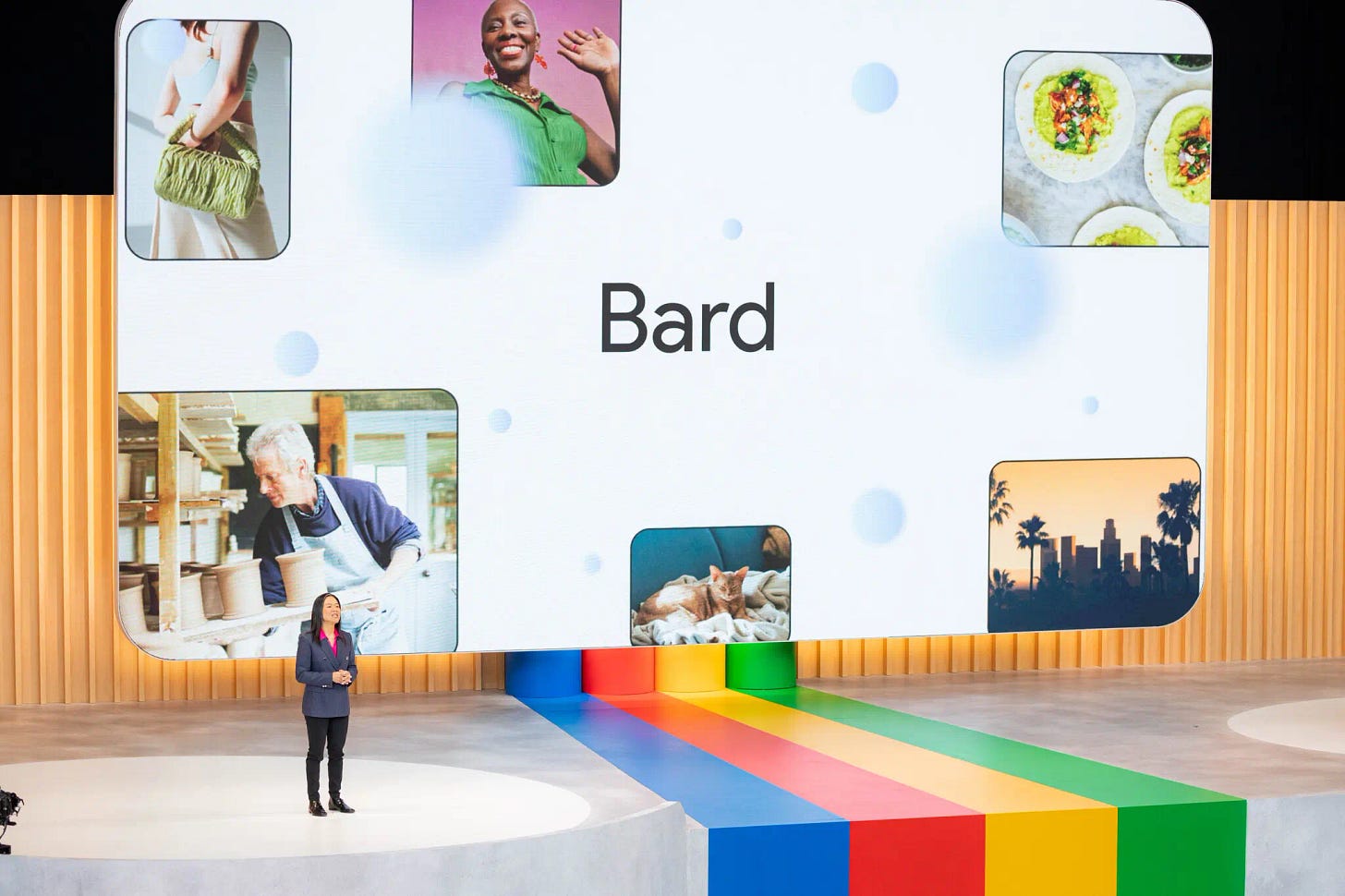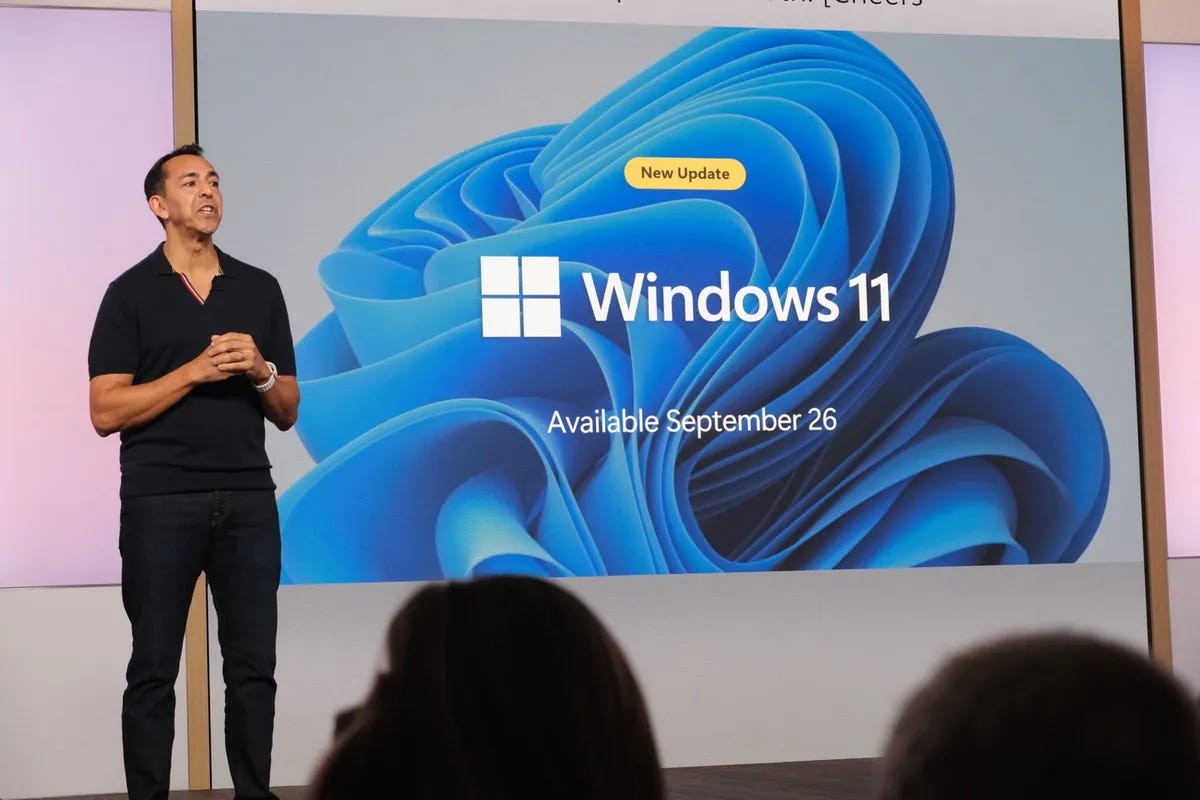AI: Knowledge Productivity Apps
...working on a slow ramp
Back in July, I addressed the potential ‘sticker shock’ from the planned pricing by Microsoft and others for AI tools like CoPilot for Office 365 and Windows, promising ‘AI augmentation’ for ‘Knowledge Workers’ everywhere (a phrase coined by management guru Peter Drucker in 1959, and popularized particularly by Microsoft in the 1990s).
Partly due to the currently high AI computing costs, and the perceived demand for all things AI, tech companies thought businesses especially would pay prices like the $30/month/user costs for AI productivity tools like the aforementioned CoPilot for Office 365 productivity apps. Google was also expecting to explore similar pricing when it tooled out its Bard, Palm2, and soon Gemini-powered AI tools for Google’s productivity apps and services.
But we didn’t know how effective the tools would be to use, since they were mostly in closed beta tests. Now we’re getting a peek at the results. And spoiler alert, they’re a bit underwhelming, for now. Tech luminary Kevin Roose, who writes for the NYTimes, got an early drive around the block with Google’s Bard AI driven productivity tools:
“This week, Bard — Google’s competitor to ChatGPT — got an upgrade.”
“One interesting new feature, called Bard Extensions, allows the artificial intelligence chatbot to connect to a user’s Gmail, Google Docs and Google Drive accounts.”
“(Google also gave Bard the ability to search YouTube, Google Maps and a few other Google services, and it introduced a tool that would let users fact-check Bard’s responses. But I’m going to focus on the Gmail, Docs and Drive integrations, because the ability to ask an A.I. chatbot questions about your own data is the killer feature here.)”
“Bard Extensions is designed to address one of the most annoying problems with today’s A.I. chatbots, which is that while they’re great for writing poems or drafting business memos, they mostly exist in a vacuum. Chatbots can’t see your calendar, peer into your email inbox or rifle through your online shopping history — the kinds of information an A.I. assistant would need in order to give you the best possible help with your daily tasks.”
“Google is well positioned to close that gap. It already has billions of people’s email inboxes, search histories, years’ worth of their photos and videos, and detailed information about their online activity. Many people — including me — have most of their digital lives on Google’s apps and could benefit from A.I. tools that allow them to use that data more easily.”
Here’s how it went:
“I put the upgraded Bard through its paces on Tuesday, hoping to discover a powerful A.I. assistant with new and improved abilities.”
“What I found was a bit of a mess. In my testing, Bard succeeded at some simpler tasks, such as summarizing an email. But it also told me about emails that weren’t in my inbox, gave me bad travel advice and fell flat on harder analytical tasks.”
To be fair, the Google head of Bard, continued to highlight throughout the piece the early, experimental stages of these Bard integrations into productivity apps used daily by billions. And that their reliability, extensibility, and capabilities are still very limited, and can only get better.
But the piece does outline in a detailed fashion, the author trying a number of things with the AI we would all want to try given these types of tools and promises. And it’s clear they have a ways to go on accuracy and capabilities. As Kevin himself summarizes on Twitter/X:
“It's a good bet that these Bard features (like most AI tools) will get better over time. But the fact that it was released now, even as an experiment, shows the kind of pressure Google is under to ship new AI tools fast.”
Not so coincidentally, Microsoft also this week highlighted the next major upgrade to Windows 11, and again, AI is a front and center feature:
“Microsoft will release its next big Windows 11 update on September 26th. The update will include the new AI-powered Windows Copilot feature, a redesigned File Explorer, a new Ink Anywhere feature for pen users, big improvements to the Paint app, and much more.”
Windows Copilot is the headline feature for the Windows 11 23H2 update, bringing the same Bing Chat feature straight to the Windows 11 desktop. It appears as a sidebar in Windows 11, allowing you to control settings on a PC, launch apps, or simply answer queries. It’s integrated all over the operating system, too: Microsoft executives demoed using Copilot to write text messages using data from your calendar, navigation options in Outlook, and more.”
And again, a brief spin through the promised features, including the demo video here, highlights that the early capabilities may still be early and basic in their capabilities. As the Verge explains:
“This is also Microsoft’s latest attempt to deliver a digital assistant inside Windows after the company shut down the Cortana app inside Windows 11 last month. It might be more successful this time, particularly as it’s powered by the same technologies behind Bing Chat, so you can ask real questions and get answers (that might not always be accurate) in return.”
Users always wants a fast race, clear winners and losers, and continually satisfying answers to “Are we there yet?” As these and likely future AI knowledge productivity rollouts will likely illustrate for the near-term at least, it may take a bit longer than we all like for AI to do its thing. Companies big and small are hard at work investing billions and trying to make all this work. Patience may be a virtue, especially for AI technologies to be more fully baked for knowledge workers everywhere. Stay tuned.
(NOTE: The discussions here are for information purposes only, and not meant as investment advice at any time. Thanks for joining us here)






